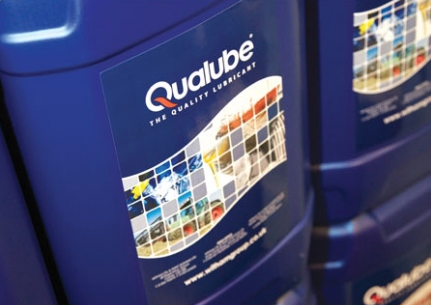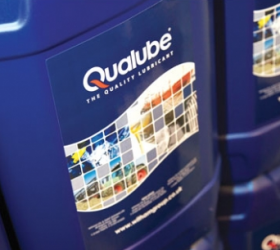Vehicle downtime can be a costly inconvenience, especially during busy periods and in the current climate, no transport business can afford to have their vehicles off the road.
 Remarkably, almost 70% of all unreliability in machines and engines is caused by improper lubrication. (Source: Machinery Lubrication magazine.) Lubricant demands for vehicles and machinery are greater than ever, especially when they are in use constantly.
Remarkably, almost 70% of all unreliability in machines and engines is caused by improper lubrication. (Source: Machinery Lubrication magazine.) Lubricant demands for vehicles and machinery are greater than ever, especially when they are in use constantly.
Here, Mick Kenyon – Operations and Technical Director at lubricant manufacturer ‘The Witham Group’ provides some useful tips on how having the right oil might just help keep your vehicle fleet on top form.
Get The Right Viscosity Of Oil For Each Application
Oil is to an engine what blood is to the human body. If it’s too thick it can cause the engines oil system to clog (think heart attack); too thin and you risk uncontrolled wear. So, selecting and maintaining the consistency (viscosity) is key. When oil viscosity is too low or high, it may be detected as a loss of pressure in the oil supply to the engine.
Oil Can Help With Fuel Economy
The thicker that oil is, the more energy it takes to pump that oil, which uses fuel. Just like people may take blood thinning drug to make it easier on their heart to pump it, it’s the same with engine oil. Heavy Duty engines for trucks and machinery have traditionally used higher viscosities, but the latest research and lubricant technology is helping fleet owners reduce fuel costs.
In Europe today the most popular grade for heavy-duty engine oil is 10W-40 and they are moving to 5W-30 in many cases. Part of the reason you can used lower-viscosity oils today than you could in the past is that the precision and the tolerances in the engine hardware itself is much better today, in addition huge technological strides have been made in both base oil & additive chemistry allowing these lower viscosity grades. The engine oil still needs to be thick enough to prevent friction and wear and tear but can now offer superb protection at lower viscosities all keeping to manufacturer’s recommendations and approvals.
Mick also points out that there is a very strong likelihood that truck fuel economy standards will be coming in the next four to five years as part of government efforts to reduce greenhouse gas emissions. Having the right oil for your vehicle type is therefore crucial for all businesses.
It’s not just fuel economy, incorrect lubrication causes mechanical wear and premature equipment failure. Using the wrong or low-quality lubricants is a major factor given that it may not contain the essential chemistry to prevent premature wear and corrosion.
Older equipment’s needs are very different to modern applications, including complying with the latest emissions standards. A trusted oil manufacturer uses approved formulations approved by the OEM. This helps ensure that warranty conditions are not jeopardised, and servicing costs are kept to a minimum. Always choose a lubricant that meets the appropriate quality standard specified by either the OEM or one of the industry bodies such as ACEA or API.
An extra consideration in modern vehicles is the protection of the after-treatment devices, for example SCR or DPF’s. Using the wrong lubricant can seriously damage these sensitive devices causing them to fail meaning both expensive replacement parts and downtime. These types of engine oils are often referred to collectively as low SAPS (Sulphated Ash, Phosphorus & Sulphur). The levels of these components must be below stringent levels to ensure full protection.
Modern HDDO (Heavy Duty Diesel Oils) continue to advance at pace, the trend to lower viscosity products looks set to continue, longer drain intervals are forever being pursued, the increasing use of bio diesels presents particular challenges and as previously mentioned fuel economy specifications will likely be issued by both OEM’s and the industry in the very near future. This makes it even more essential that your lubricant supplier is well informed and knowledgeable with respect to the specifications and developments within the lubricants industry.
Get The Right Advice
If you are not sure which vehicle needs which oil – you can check over the phone or in normal circumstances with a free of charge personal lubricant survey. In the current climate and for anyone wanting to check themselves, Witham offers a very simple online Lubricant Finder for all vehicles.
Visitors to the site can simply go online, enter their vehicle type and all the recommended lubricants and related products specific to that vehicle are listed. This is for commercial transport vehicles, agricultural and plant machinery as well as cars, buses and vans.
For more information or to contact The Witham Group visit withamgroup.co.uk





